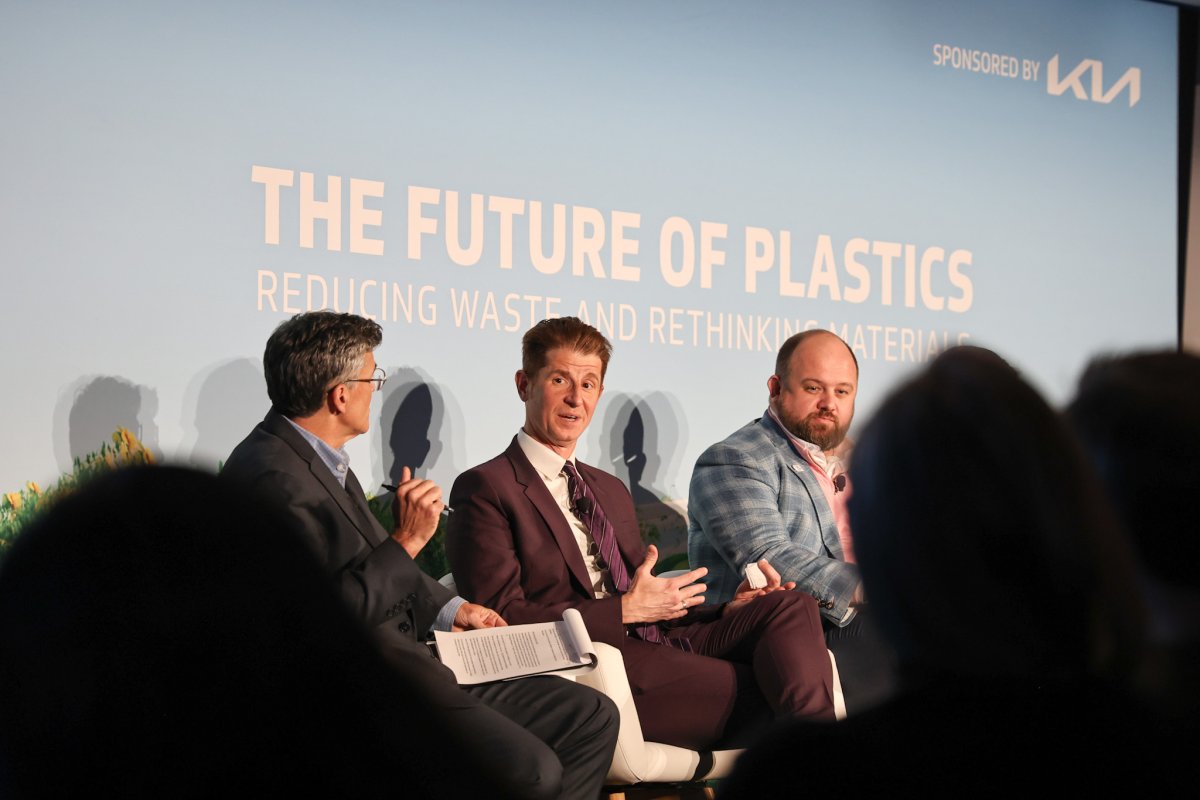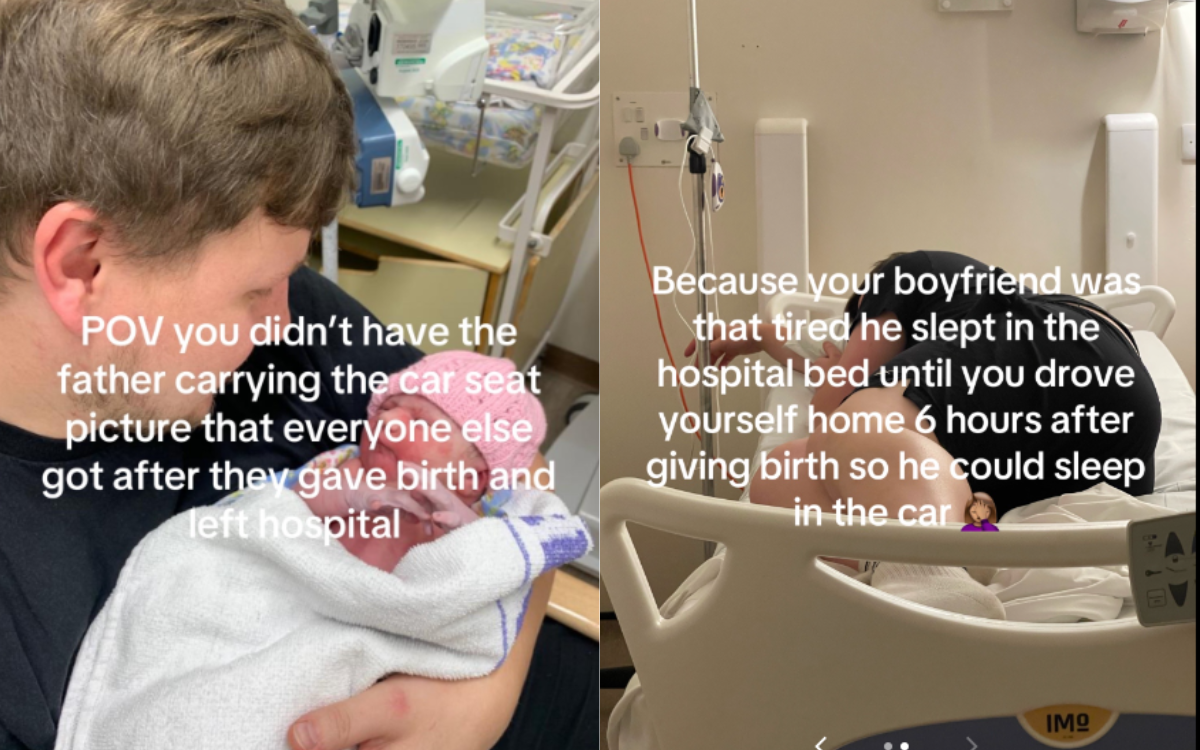During last week's "The Future of Plastics: Reducing Waste and Rethinking Materials" event, environmental sustainability and health experts discussed ways to eliminate plastic waste and improve recycling systems across the U.S.
The event, sponsored by Kia, took place at Newsweek's office at One World Trade Center in New York City on December 4 and featured an art installation of pieces made from recycled plastic materials.
The main event of the evening was a panel discussion with Newsweek Environment and Sustainability Editor Jeff Young that included:
- Jessica Long, chief strategy officer and head of Closed Loop Partners' operating group Closed Loop Builders
- Erin Simon, vice president and head of plastic waste and business at the World Wildlife Fund
- Jonathan Quinn, CEO of the U.S. Plastics Pact
- Allison Lin, global vice president of packaging sustainability at Mars, Inc.
- Dr. Leonardo Trasande, director of the NYU Center for the Investigation of Environmental Hazards

Panelists explained how plastic waste not only impacts the environment but human health as well.
Trasande mentioned the growing concern scientists and young activists have for evidence of microplastics in human bodies.
"They're seeing chemicals of concern in people, and they're saying, 'What can we do about it, and how can we stop this before we all suffer the consequences?'" he said.
Trasande said there is robust scientific evidence that chemicals used in plastic cause harm to human health "from cradle to grave" and lead to $250 billion in disease-related costs in the U.S. each year.
Reducing health concerns starts with compiling a list of the chemicals experts know to cause harm to humans. Those chemicals of concern include per- and polyfluoroalkyl substances (PFAS), persistent bioaccumulative and toxic (PBT) substances, flame retardants and metals.
Removing those problematic materials from products and packaging will help companies transition to a circular economy that keeps substances in the supply chain longer.
"That is a very viable, real, tangible thing that can be done today, but companies have to make that commitment," Jonathan Quinn of the U.S. Plastics Pact said. "These changes can be made. That is a fact."

During the panel, Erin Simon of the World Wildlife Fund said the U.S. recycling system is "not set up for success."
But with the proper infrastructure in place to collect and sort waste material, adequate product design guidelines, transparency and incentives, things can improve.
"If we fix the broken system today, there's a lot of benefit [for] economics, jobs, better products, better quality materials and the ability to gain all of that value out of those materials we're throwing away right now," she said.
One solution is for companies to transition into extended producer responsibility (EPR)—a waste and pollution management concept that encourages companies to design more sustainable and recyclable products and manufacturing practices.
"We need the investment in partnerships and funds, in recycled content, to be able to continue to drive the circular economy," said Allison Lin, the VP of sustainability at Mars, Inc. "So if EPR is designed well, it can incentivize you to reduce the materials, because no one wants to pay for more than you need. It can incentivize you to move to better materials that have more value, and it can incentivize you to move to reuse-and-refill models."

The need to reduce plastic waste around the world is urgent and vital to the health of the planet and its occupants. And the panelists at the "Future of Plastics" event are hopeful that a brighter future is ahead.
"We know the answers to this problem," Jessica Long said, "all the solutions exist."






.png)

_(1).png)











 English (US) ·
English (US) ·